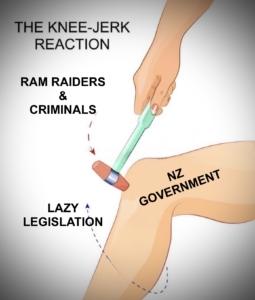MEDIA RELEASE; 16 March 2023
The New Zealand Deerstalkers Association (NZDA) is deeply concerned with the recent proposal by the Police to significantly increase firearms licensing fees.
The proposed fee hikes have the real potential to severely impact public safety, Aotearoa New Zealand’s conservation and biodiversity goals, and other community good outcomes, particularly in terms of our ability to educate firearms users in the safe handling and storage of firearms and ammunition.
Additionally, the proposed fees unfairly target lower-income recreational hunters and shooters, many of whom depend on hunting to provide food for their families, especially during the current cost of living crisis.
At the NZDA, we believe that the proposed fee increases will not necessarily improve safety and security of firearms in New Zealand, instead the fee hikes will be used to pay for high-paying government jobs in Wellington.
In fact, if fees are set at a level which is unaffordable to the 240,000 firearms licence holders, it may have the opposite effect by leading to decreased compliance and a decline in the number of licensed firearms owners.
NZDA’s CEO, Gwyn Thurlow, says “the goal to impose cost recovery on a small pool of people at the cost of general public safety has to be weighed up. And that balancing act has to be considered in the context that firearms are used across our communities for farming, pest control and hunting purposes and those communities have been hit hard in recent times. Huge hikes would be unreasonable for the government to impose”.
The Police failed to do any community-impact or price-sensitivity analysis before coming up with their proposals. Recognising the potential adverse consequences of such a proposal, NZDA conducted a survey of over 2,500 people to obtain data on the community impact and gather their views on the proposal. Our survey data shows that most current licensed firearms owners are willing to accept a fee increase to their licences of between $150-$300.
“Owning and using firearms is now a privilege under the Arms Act but in New Zealand, unlike in most other countries, it has not just been accessible for the rich and privileged. Here we have a tradition of all Kiwis being able to hunt and gather food as a fundamental part of our culture and tradition,” Mr Thurlow said.
The NZDA has identified several concerns with Police’s proposal, including a likely significant drop in compliance, education, and safety, an increase in the size of the grey and black-market trade of firearms, a decrease in Police oversight over firearms possession and use, and a reduction in the use of formal dealers in exchange for informal, ad-hoc person-to-person sales of firearms and ammunition.
In addition, the proposed fee increases will cause a shortfall in the number of valued big game and pest animals harvested and controlled on both private and public land. This will have to be met by taxpayer and ratepayer agencies such as the Department of Conservation, Land Information New Zealand, QEII Trust, and Regional Councils (each of which will in turn have faced high costs due to the same Police fees being imposed). This will have severe consequences for taxpayers and ratepayers as well as families dependent on hunted food/mahinga kai who are already struggling with the cost-of-living crisis.
If firearms usage drops due to licensing being unaffordable, this will significantly increase browsing pressure on our native plant species which is in direct opposition to the goals of the Te Ara ki Mua Framework which states that the key action is to reduce browsing pressure and support ecosystem resilience by:
- Improving monitoring, delivery, and evaluation of wild animal management, and
- Coordinating efforts and enhancing capacity across the people, organisations, and agencies involved in wild animal management.
The NZDA believes that the proposed fee increases will also result in restricted access to sport shooting and recreational hunting, particularly for lower-income communities including rural and Māori communities and youth. It is likely that there will be significantly lower uptake of sports that require firearms if fees increase. As a nation that regularly wins medals at Commonwealth and Olympic Games in shooting disciplines, this would be detrimental to attaining world class skills.
In light of these concerns, the NZDA has requested that Police reconsider the proposed fee increases for firearms licensing and engage with the NZDA and the firearms community to discuss our concerns.
Mr Thurlow said, “At the moment a firearms licence is $126.50 but that is set to increase to somewhere in the order of $700-$1000. What this means is that the average person won’t afford a firearm, they won’t get into the sport of hunting or they may give it up because it is unaffordable. And that is a huge risk to biodiversity and public safety.”
Notes:
- NZDA’s full submission to Police is available here.
- NZDA has contacted Police and the Minister of Police on multiple occasions to request official information in response to many of our concerns. Those requests have thus far been denied or have been left unanswered. We can provide copies of those documents if required.
– ENDS –
MEDIA CONTACT:
Gwyn Thurlow, CEO and General Counsel
M: 0274060060
E: gwyn.thurlow@deerstalkers.org.nz



